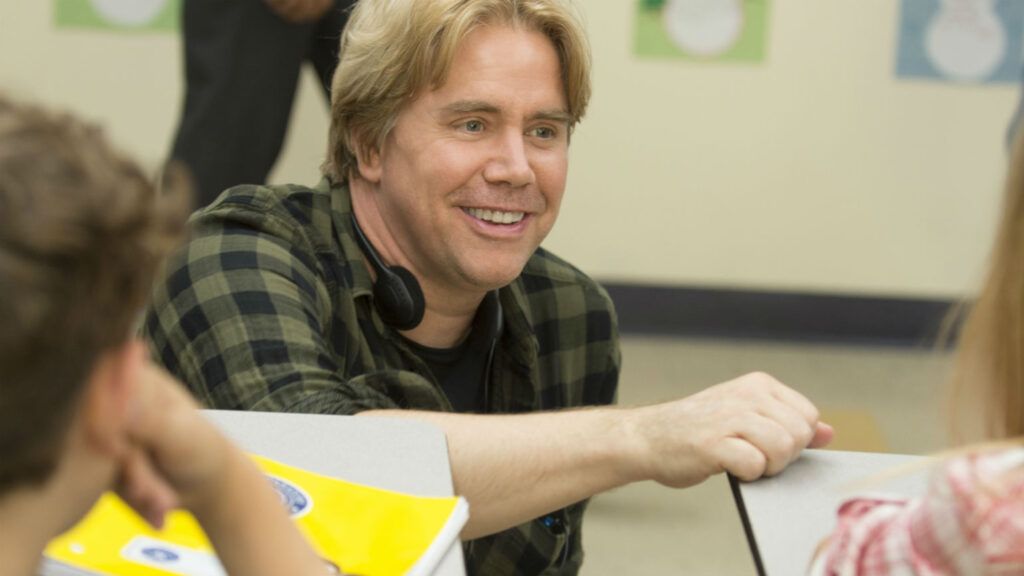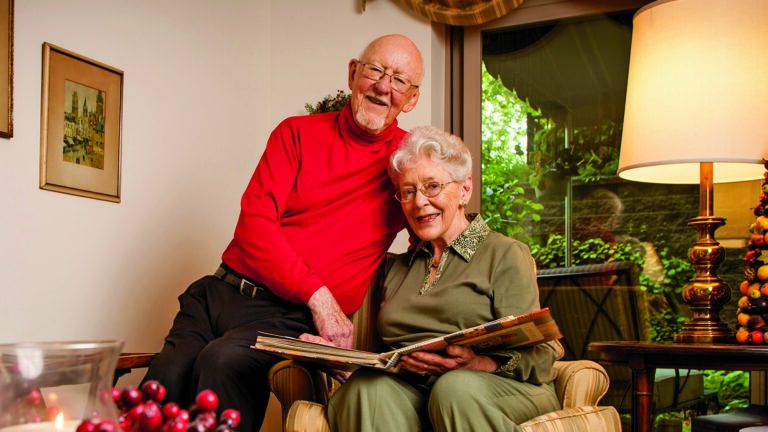When author and filmmaker Stephen Chbosky decided to adapt R.J. Palacio’s best-selling novel Wonder, for the big screen, (available now on DVD) he did worthy goal in mind: to make the world a better place.
The book and the film follow Auggie Pullman (Jacob Tremblay), a fifth-grader going to public school for the first time and encountering bullies who harass him because of his facial deformity. His mother Isabel (Julia Roberts) and father Nate (Owen Wilson) try to encourage their son to give the kids at school a chance and, by the end of the film, everyone’s learned an important lesson about choosing kindness and embracing what makes you different.
“It sounds weird to take on a movie job—and it is a job—but to take it on as a good deed for the world, you know?” Chbosky tells Guideposts.org. “That’s what I did. I wanted to make the world a better place for my children and, I wanted to make the world a better place just in general. In this very kind, elegant, very humble way, not by preaching, but by showing, and that’s what the book does so eloquently.”
Chbosky, who gained fame with his coming-of-age story The Perks of Being a Wallflower (a book he’d later adapted into a critically praised film), first read Palacio’s tale of a young boy with a craniofacial disorder three years ago when his son Theo was born.
“In a very personal way, I hope my kids take away that their dad understood what they were going through,” Chbosky says, expanding on his motivations for doing the film. “I think most children are convinced that the process of getting older means that you forget everything.”
But the filmmaker was so intent on the message of kindness and understanding found in the book, that those themes spilled over into the production of the movie as well.
“I had a rule, and I said it to the entire crew,” Chbosky explains. “I said, ‘Look, we’re not going to yell on this set. It’s never going to happen. We can disagree, but we must be respectful. And nobody has to abide by that rule more than me.’”
Crafting a film like Wonder, one with plenty of emotional, heartfelt moments, isn’t as easy as it seems. Chbosky knew he had to walk a thin line between the more serious moments of the film and humor that actors like Wilson and Roberts were able to bring.
“I knew that with a story this inherently emotional, if we did not fight against the emotion and the sentiment, that eventually it would just burn the audience out and it would be not effective at all,” Chbosky says. “So, it was a tightrope walk.”
He was also careful to give audiences a finished project that the entire family could enjoy. The story may focus on a young boy dealing with bullies, but thanks to Chbosky’s choice to show multiple characters’ points of view, the universal themes of tolerance and acceptance reach any age demo.
“It’s my understanding that there’s no difference between children and adults,” Chbosky says of how he shot the film. “I believe that generation gaps, for example, are nothing but conversations that have not happened yet. We can either accept that these gaps exist, or we can try to bring them together.”
For Chbosky, who knows how difficult it is to bring a book to the big screen, his greatest achievement filming Wonder involves paying his respects to the woman who wrote the story and introduced us all to Auggie.
Chbosky had Palacio come to set on a day they were shooting the film’s graduation scene. She, along with her husband and two sons, served as background actors – a nice Easter egg for fans of the author who would see the film. After actor Mandy Patinkin gave his character’s speech for the scene and Chbosky got the footage he needed, the director gave Patinkin the go-ahead to read a very different script.
“He read this beautiful speech about how R.J. Palacio had changed the world, and how we were all there because of her,” Chbosky recalls. “And, she was shocked, she had no idea it was coming. So, we brought her up on stage for a big standing ovation. It was such a great moment.”
In Chbosky’s opinion, that’s the least the cast and crew could do for a woman who went above and beyond what was expected of her when writing her book.
“Here’s this incredible story about this girl from Queens who has two sons and she’s outside of an ice cream shop. She sees a little girl with a facial difference, and her little three year old son got scared by this girl, and started to cry, and so R.J. whisked her sons away and deeply regretted not just stopping and talking to the little girl, to show her son that just because the girl is different, it’s nothing to be afraid of,” Chbosky explains of what drove Palacio to write the book. “That guilt haunted her, and so rather than just letting it be and promising to do better next time, she wrote this book that made the world a better place. So, we had to honor her for that.”
As a father of two, Chbosky can identify with Palacio’s desire to leave some good in the world for the next generation. He’s hoping to do that with this film.
“On a deeper level, what I want both The Perks of Being a Wallflower and Wonder to do is to not only say that their dad gets it, but that they get it. That they’re not alone in these feelings. That everybody deals with bullies, everybody has something that they have to overcome, but they can. Whatever is wrong in your life can be fixed by whatever is right in your life. That’s a line that I wrote in my new book which will be out in 2019: everybody gets an ending, whether or not it’s happy is up to you.”





